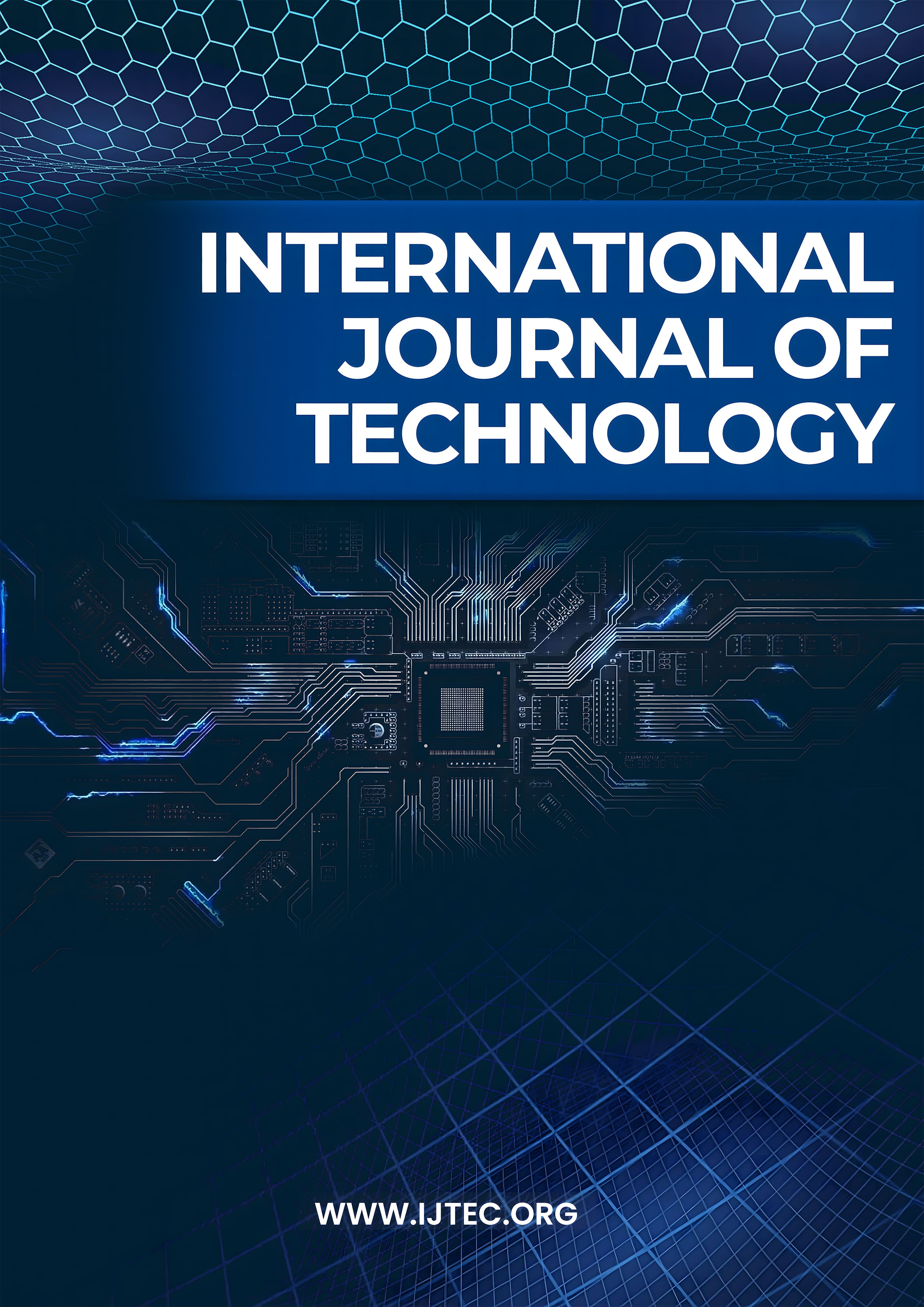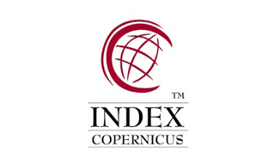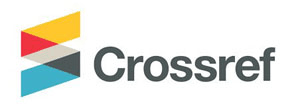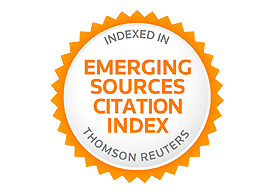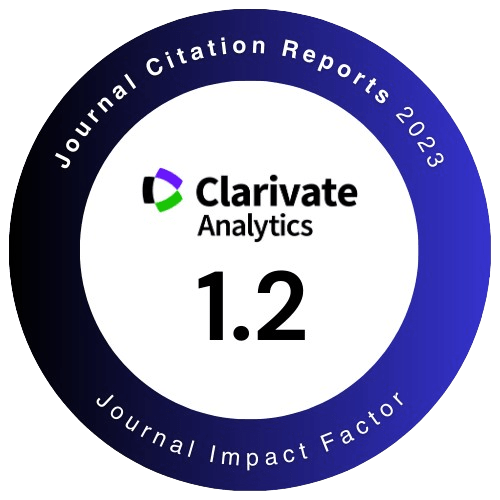Fill out the Submission form below:
Submission Preparation Checklist
As part of the submission process, authors must ensure that their submission complies with the following requirements. Submissions that do not meet these guidelines may be returned to the authors:
- The article has not been previously published or submitted to another journal.
- The file is formatted using the provided template in Microsoft Word, RTF, or WordPerfect.
- Web pages or DOIs have been included in references where applicable.
- Authors have provided their ORCID and have verified it via email.
- The template format has been followed, with all illustrations, figures, and tables placed correctly within the text rather than at the end of the document.
- The text meets the specified bibliographic requirements.
- The text does not contain any personal information or other details that could hinder the blind peer review process.
- I declare that I have the capacity (either personally or through my institution) to cover the payment of APCs as set by the journal if the article is accepted for publication. I understand that if I do not cover the initial cost, my article will not be published.
Authors' Responsibilities:
-
Authors are expected to adhere to the international publication ethics standards for authors as developed by COPE during the 2nd World Conference on Research Integrity in Singapore in 2010. These standards include:
- Conducting research in an ethical and responsible manner that complies with all relevant laws and regulations.
- Presenting research results clearly and honestly, without fabrication, falsification, or inappropriate data manipulation.
- Describing methods clearly and unambiguously to allow others to confirm findings.
- Ensuring that submitted work is original, not plagiarized, and has not been published elsewhere.
- Taking collective responsibility for all submitted and published work.
- Accurately reflecting individual contributions to the research and its reporting in the authorship of publications.
- Disclosing funding sources and any relevant conflicts of interest.
- Authors are required to participate in the peer review process.
- All authors must make significant contributions to research on a relevant topic within the social sciences, using a multidisciplinary approach.
- Authors are obliged to provide retractions or corrections if mistakes are found.
- Authors must include a list of references that features the most relevant and current literature.
- Submitted manuscripts must not be under consideration for publication in other journals.
Changes to Authorship:
Authors are strongly encouraged to verify the correct author group and the order of authors at the time of submission. Changes to authorship, such as adding or removing authors, changing the Corresponding Author, or altering the sequence of authors, will not be accepted after a manuscript has been accepted.
Evaluation Procedure:
When a manuscript is submitted, the editors first screen it to ensure that all files are free of identifying information about the authors and that the article has not been published elsewhere. Within 15 days of receiving the manuscript, the journal editor assigns it to two external evaluators for a double-blind peer review. During this review process, the identities of both the authors and the reviewers remain anonymous.
Peer reviewers are selected by the journal's editors, who are experienced researchers in their fields. Reviewers are chosen based on their expertise and the subject matter of the submission. Authors are also encouraged to suggest suitable reviewers or request the exclusion of specific individuals when submitting their manuscripts. When suggesting reviewers, authors should ensure that the suggested reviewers are entirely independent and have no connection to the work. It is recommended to suggest a diverse mix of reviewers from different countries and institutions. Authors must provide an institutional email address for each suggested reviewer. While the editors may not always use the suggested reviewers, such suggestions are appreciated and can help expedite the peer review process.
The editors review the reports from the peer reviewers and may consult with members of the editorial board to make a final decision on whether the article is publishable. The decision is based on the reviewers' reports. Editors thoroughly check all reviews and compare the reviewers’ comments with the content of the article before sending decisions and feedback to the authors. If a reviewer does not fulfill their duties correctly, the editors will remove them from the list and may send the article to another reviewer or a member of the editorial board for a fast-track review.
If editors have any doubts after the review process, they will double-check the evaluation with members of the editorial board, particularly those specializing in the relevant field, to reach a consensus and final decision on the manuscript.
The evaluation result will be communicated to the authors within a maximum of 3 months from the date of submission.
Guidelines for Submission of Articles
To ensure the originality of submitted manuscripts, authors are encouraged to use plagiarism detection programs. For more information, you can visit iThenticate at http://www.ithenticate.com/.
Authors submitting a manuscript to IJTEC must include their professional details and, if available, their ORCID ID on the title page (see below). Authors who do not yet have an ORCID ID should complete the registration process at http://orcid.org.
Structure of the Manuscripts
- Title of the Article: The title should be written in English. It should be no more than 16 words.
- Abstract: The abstract should be between 150 and 200 words and written in English. It should provide the scientific background of the research, the study's objective, the methodology used, and the main results and conclusions.
- Keywords: Include 3-5 keywords that define the article and help identify its content. Text of the Article: Include all sections of the manuscript in the same document whenever possible.
- Acknowledgements and/or Source of Funding: Acknowledge any contributions or funding sources.
- Notes: Avoid using notes when possible. If necessary, they should be placed after the acknowledgements and before the references, following the endnote format.
- References: Follow the citation style provided in the guidelines (see citation style section below).
- Supplementary Documents: Separate documents may be uploaded for tables, figures, and appendices if needed. For images, they must be submitted in JPEG format with the highest quality possible.
Title Page
A separate document will be added with the name of the authors (in order of signature), their affiliation, ORCID ID and email address. Please indicate who is the corresponding author. When this information is not complete or a Title page is not submitted, the article will be desk-rejected.
Citation Style
Manuscripts should follow the Publication Manual of the American Psychological Association (APA style, 7th edition). Please remove all automatic referencing features from the document and ensure that in text citations and references are text. Furthermore, do not copy the text in the source format and adapt it to the template format.
The following are some citation examples:
- [Book] Lareau, A. (2004).Unequal childhoods: Class, race, and family life. Berkeley, CA: University of California.
- [Book chapter] Naimark, N. M. (2012). The Russians and Germans: Rape during the War and Post-Soviet Memories. In R. Branche, & F. Virgili (Eds.), Rape in Wartime (pp. 201-219). Palgrave Macmillan. http://10.1057/9781137283399
- [Journal article] Lareau, A., & Lopes Muñoz, V. (2012)."You're Not Going to Call the Shots": Structural Conflicts between the Principal and the PTO at a Suburban Public Elementary School.Sociology of Education, 85, 201-208. http://doi.org/10.1177/0038040711435855
Length
Manuscripts submitted should be between 4,000 and 8,000 words in length, including the title, abstract, acknowledgements, notes, references, and appendices.
Format
Manuscripts should be presented in MS Word or RTF format, following the provided template. The text should be in Times New Roman, 11-point font, and 1.15 spaced. Only the titles on pages 1 and 2 should be in 20-point font. Do not alter the bold font or the purple color specified in the template.
Source of Funding
If the research from which the article is developed received funding, the name of the funding agency and the project code must be indicated in both the specific section of the article submission form and the article's acknowledgements section.
Notes
Avoid notes whenever possible. If necessary, they should appear after the acknowledgements and before the references, not as footnotes.
Abbreviations
Only universally accepted abbreviations may be used.
Gender Equality
- Follow the APA 7th edition guidelines for inclusive language when writing the article.
- Include the full names of all authors who sign the article.
- IJTEC recommends indicating in the methodology section whether the research's source data accounts for sex and/or gender to identify any potential differences.
Authorship
Authors should avoid disclosing their identity in the manuscript. The author's name(s) should not appear on any page of the manuscript. Instead, author information should be included in the Title Page and on the electronic submission platform. At submission, all authors must be listed on the online platform, including their full name, affiliation, ORCID ID, postal address, and email address. Incomplete submissions will be desk-rejected.
Contribution to the Preparation of the Article
A separate document detailing each author's specific contributions to the article's preparation should be attached to the submission.
Running Title
A running title of fewer than 25 characters should be included on the first page. The title should be informative and specific, conveying the meaning and aims of the work.
Language
Manuscripts must be written in English and should be grammatically correct, regardless of the language used. Authors are responsible for ensuring that their manuscript meets the language standards required by the journal. Authors are encouraged to use language editing services. IJTEC requires manuscripts to be submitted with excellent language quality. If the manuscript is written in a second or third language, it is recommended to seek language review services to avoid grammar and style errors.
